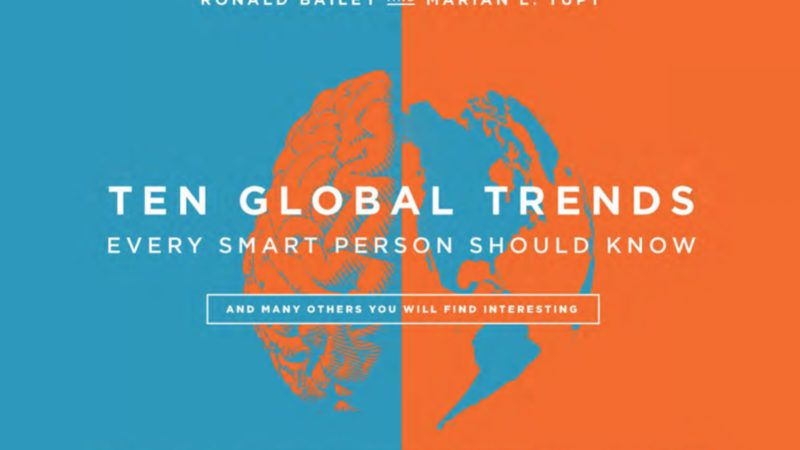2020 Has Been Terrible So Far, but There's Still Good News Out There
Sometimes, it's good to take a step back

It is safe to say that 2020 has not panned out in a way that most of us had hoped or expected. Nevertheless, the state of humanity and the world as a whole is, for the most part, much better and improving faster than most people think.
That is what I and my co-author Marian Tupy demonstrate in our new book, Ten Global Trends Every Smart Person Should Know: And Many Others You Will Find Interesting. In our book, we provide straightforward charts and graphs, combined with succinct explanations, that will provide you with easily understandable access to the facts derived from uncontroversial scientific and official sources that busy people like you need to know about how the world is really faring. You can't, after all, promote further progress or fix what is wrong in the world if you don't know what's actually happening.
Of course, some global trends are negative. As Harvard University psychologist Steven Pinker says: "It's essential to realize that progress does not mean that everything gets better for everyone, everywhere, all the time. That would be a miracle, that wouldn't be progress." For example, manmade climate change arising largely from increasing atmospheric concentrations of carbon dioxide released from burning fossil fuels could become a significant problem for humanity later in this century. In addition, many wildlife populations are declining, and tropical forest area continues shrinking. And far too many people are still malnourished and dying in civil and sectarian conflicts around the globe. And let's not forget the ongoing COVID-19 pandemic.
Over the past two centuries the spread of freer markets and trade as resulted in the Great Enrichment in which global average per capita income has steeply risen and poverty has fallen to its lowest level in all of human history. Human ingenuity and innovation have driven down the prices of natural resources and boosted record food production. As a result of increasing wealth and technological prowess, the amount of land devoted to agriculture is shrinking thus sparing land for nature while the proportion of wildlands and the oceans set aside for conservation and protection continue to expand.
Ultimately, the global trends we document in the book augur a world that by the end of this century will be populated with fewer and much wealthier people living mostly in cities with nature occupying or reoccupying the bulk of the land and sea freed up by human ingenuity.
For a preview of some the major themes in the book, click over to listen to my recent conversation with the American Enterprise Institute's James Pethokoukis.


Show Comments (46)